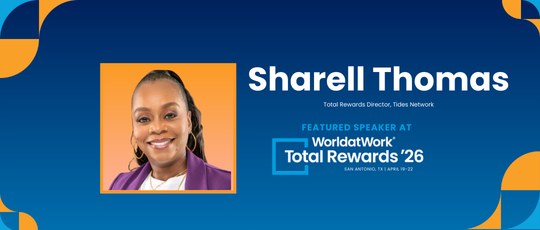- More employers are emphasizing skills. A 2022 study found that 81% of employers are emphasizing skills rather than degrees when hiring.
- Skill-based pay is more equitable. Taking a skills-based approach drives more equitable access to opportunities both internally and externally, as it is a more “relevant lens” for assessing organizational levels and, as a result, pay.
- Education is a less-critical factor in determining compensation. If organizations no longer require a degree to qualify for a role and it is not deemed an indicator of success for the role, many organizations will choose not to use this as a factor to distinguish pay.
- Narrowing the focus on education. For employees who receive education or certification, “stretch assignments” or formal mentoring can determine newly acquired skills. If they bring added value to the organization, then there can be justification for higher compensation.
When it comes to balancing education and experience in making compensation decisions, times are changing.
For instance, a 2022 survey of 1,500 Gen Z youth and 600 employers by American Student Assistance (ASA) and Jobs for the Future (JFF) revealed 81% of employers believe they should focus on skills rather than degrees when hiring.
There is a desire from employers (68%) to hire from non-degree pathways. Yet, even though most employers (72%) don’t see a degree as a reliable signal for assessing the skills of a candidate, the majority (52%) still hire from degree programs because they believe it is a less risky choice when hiring, the survey found.
On the flip side, ASA data show that Gen Z students are still defaulting to degree programs because many believe employers favor degrees (37%), and they also fear there is too much risk associated with choosing the wrong non-degree post-secondary path (65%).
According to Molly Leeds, senior principal at Mercer, education and experience, and sometimes pay history, traditionally have been key drivers of starting pay for employees when they are hired externally.
“As employees progress through their careers and earn additional pay through merit and promotions, pay decisions shift more toward market position, which is based on pay range, demonstrated skill sets and performance in the role,” she said.
A New Viewpoint
Leeds said that while formal education and degree requirements have been long-standing contributing factors to job-leveling criteria, Mercer is seeing more employers move away from these requirements toward a stronger focus on relevant experience and/or demonstrated skills and competencies.
To expand and diversify a talent pool, she explained, taking a skills-based approach drives more equitable access to opportunities both internally and externally, as it is a more “relevant lens” for assessing organizational levels and, as a result, pay.
Leeds gave this example: Many employers would prefer hiring someone who did not go to college and instead has hands-on, practical coding experience, versus a person with a college degree who knows the same coding languages but has less real-world application of that knowledge. This approach also has the benefit of advancing the organization’s diversity, equity and inclusion initiatives, Leeds noted. Research has shown degree requirements are often a barrier to the advancement of minority talent.
There’s also a trend of employers reducing educational requirements for some jobs, so it is no longer required to have a specific degree to qualify for a specific job. If a candidate does have that degree, it does not necessarily merit a higher salary for the job.
“If the degree is no longer required and is not deemed an indicator of success for the role, many organizations will choose not to use this as a factor to distinguish pay,” Leeds explained. “With skills moving to the forefront of how organizations are looking at how their talent can support the achievement of business priorities today and in the future, higher pay for formal education is taking a backseat to a skills-based pay approach at leading organizations.”
Determining a Starting Salary
While skill-based pay is a concept that recruiters and hiring managers have been factoring into decisions on starting salary, more formal skills-based pay or pay-for-skills programs are on the rise.
For example, Mercer’s “2023 Global Talent Trends Report” found that designing skills-based talent programs was a top HR priority among 36% of respondents in the U.S. believe in skills-based pay as a way to provide more transparency to employees on what makes up their pay and how they can increase their earning potential.
“In a world where more organizations are required to be transparent around pay ranges for every job, breaking down compensation components — skills, education, experience and responsibilities — allows employees greater clarity on why they are paid, what they are paid, and how they can continue to grow their compensation,” she said.
Matt Kerzner, director at EisnerAmper's Center for Individual and Organizational Performance, said as the U.S. starts to experience a skills shortage in certain areas, the argument can be made that higher education might not always be necessary. For example, he cites a current shortage of accountants, so obtaining an MBA or master’s in accounting might not be needed if one passes the CPA exam.
“Educational requirements, in my opinion, are not as important as work experience,” he said. “I think organizations that keep education requirements on job postings can limit qualified candidates who have the work experience but might not have the degree on paper.”
Kerzner added that he has seen a recent uptick in employees who go through education that firms pay for through tuition-reimbursement programs, yet those skills are never truly utilized by the organization.
To counter that, he said, after employees receive education or certification — especially those that the organization pays for — there should be “stretch assignments” or a formal mentoring process to see what skills have been acquired and how they’re being used within the organization.
“If there is added value, then there can be justification for higher compensation,” he said, adding that employers can do a much better job tracking employees’ skills, education and certifications within their HR information system, so that when they need employees to step up or be included in projects, the organization has what it needs, when they need it.
Editor’s Note: Additional Content
For more information and resources related to this article see the pages below, which offer quick access to all WorldatWork content on these topics:








